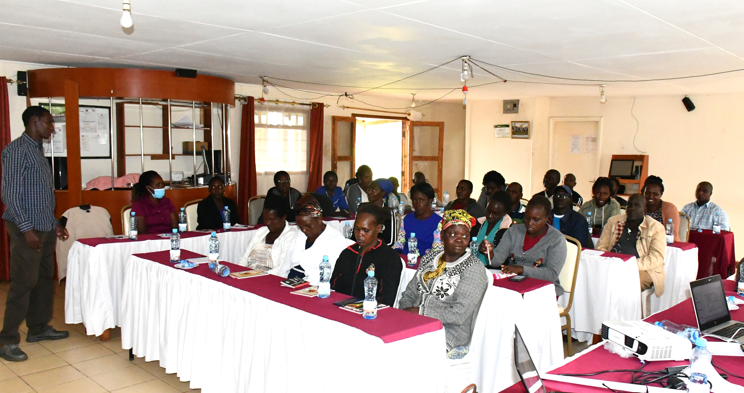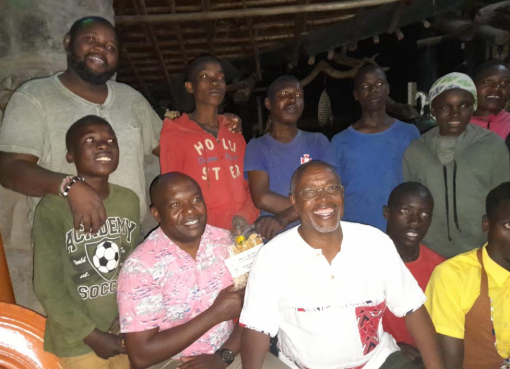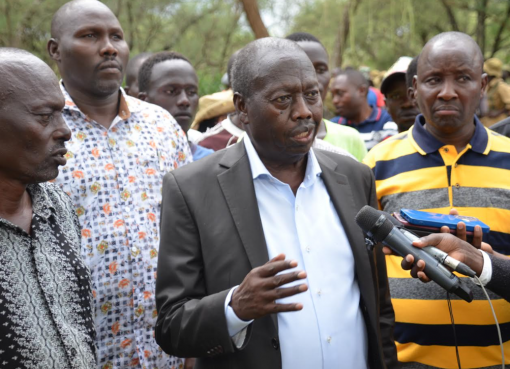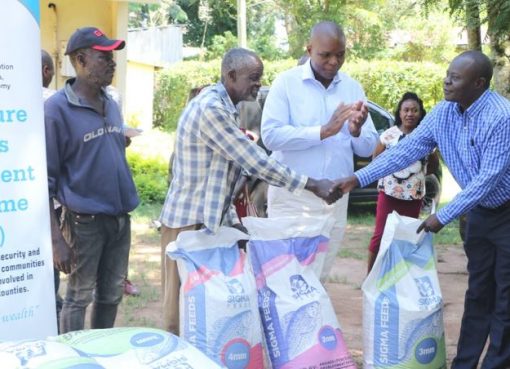A total of 30 Kericho-based Community Health Volunteers (CHV) benefitted from a two-day training and sensitization seminar on Female Genital Fistula (FGF) in order to gain skills on identifying women with fistula in their communities for referral to health facilities for treatment.
The training of Community Health Volunteers drawn from the six sub-counties in Kericho, courtesy of the Fistula Foundation, targeted the volunteers as crucial outreach partners in the fight against fistula in villages; hence, they can easily access women ailing from fistula.
The Fistula Foundation Monitoring and Evaluation Officer, Mr. Nelson Musa, said the non-governmental organization (NGO) was implementing the Kenya Fistula Treatment Network Program, whose objectives include training surgeons and nurses on fistula care and management and training community health workers.
Mr. Musa was concerned that there was a prevalence of fistula in Kericho County, thus a need to train the health volunteers, whose role in the identification and referral of patients for treatment was critical in the fight against the condition.
“We are supporting the health volunteers, who will also play a critical role in eradicating stigma around fistula since it affects the reproductive organs of a woman,” said Mr. Musa.
The Community Health Volunteers were also trained on counseling skills and communication skills with the clients, as well as screening, which involves the use of the Community Based Assessment Tool (COMBAT).
In the meantime, according to the Kericho County Health Education Officer, Dr. Isaac Tanui, an estimated 3,000 new cases of Female Genital Fistula, occur annually in Kenya, with approximately one or two cases in every 1,000 deliveries.
“One per cent of women in Kenya have experienced fistula, translating to about 223,000 cases since the year 2011, while 7.5 per cent of women with fistula are able to access treatment, meaning the remaining 82.5 per cent of women with fistula have no access due to diverse reasons such as stigma and a lack of information on treatment,” added Dr. Tanui.
During the training session, Dr. Tanui explained the difference between the two types of vaginal fistulas, both of which develop after tissue damage or trauma from childbirth, surgery, infections, cancer, or a chronic condition.
“A virginal fistula is an opening or a hole that forms between the vaginal wall and another organ, to which it is not normally connected. So vesicovaginal fistula is a connection between the bladder and the vagina, while rectovaginal fistula describes a connection between the vagina and the rectum,” said Dr. Tanui.
The medic further explained that women with vesicovaginal fistula experience continuous leakage of urine from the bladder into the vagina and urinary incontinence, while those with rectovaginal fistula experience passage of stool and gas through the tract.
“Vaginal fistulas by themselves do not cause pain or discomfort, but they may result in unpleasant symptoms such as urinary incontinence, fecal leakage, vaginal discharge, abdominal pain, painful intercourse, diarrhea, and vaginal bleeding,” explained Dr. Tanui.
The informative seminar was conducted as the world marked the International Day to End Obstetric Fistula with emphasis on prenatal care, which is a preventive health care provided to inform of medical check-ups consisting of recommendation on managing a healthy lifestyle and provision of medical information such as maternal and physiological changes in pregnancy, biological changes and prenatal nutrition.
“We are urging our pregnant women in villages around Kericho County to visit the antenatal clinics for the crucial care they need from the first month to avert chances of developing fistula during childbirth, which we discourage them from giving birth at home,” stressed Dr. Tanui.
The medic assured that there were successful fistula repairs, calling on affected women to seek treatment and care to lead normal lives after recovery.
“After the operation of a fistula, we encourage women in treatment and care to avoid sexual intercourse for at least six months to facilitate full recovery. We also counsel husbands to patients so that they can support their women during recovery season.” Added Tanui
The Community Health Volunteers were promised a stipend of Sh. 1,500 for every referral of fistula patients to health facilities for treatment, and the patients also benefit from a Sh. 1,500 transport refund courtesy of the Fistula Foundation, which has 10 fistula treatment hospitals countrywide.
“We have trained health professionals in the ten facilities, including Bomu Hospital Mombasa, Nairobi Jamaa Mission, Garissa County Referral, Narok County Referral, Kapenguria County Referral, Kisii Gynocare, Eldoret Gynocare, Cherang’ani Nursing Home in Kitale, and Nyambene Sub-County Hospital Meru,” outlined Mr. Juma.
The Fistula Foundation Monitoring and Evaluation Officer also intimated that survivors of fistula, especially those most vulnerable, benefitted from vocational skills training to continuously access social support, counseling, and initiatives around generating income.
“We support survivors by giving them capital to start income-generating activities, and we train them on entrepreneurship skills, where they learn the basics of managing businesses,” said Juma.
By Kibe Mburu and Daizy Chebet





